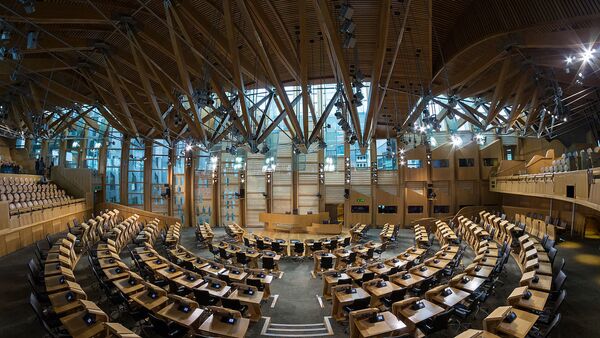The majority of Scottish lawmakers — 93 people — cast their ballots against the bill which defines post-Brexit sharing of power between regional authorities. Members of the Scottish National Party, the Labor Party, the Liberal Democrats and Scottish Greens showed a rare unity, approving the proposal of the Scottish government to reject the EU withdrawal bill. Meanwhile, 30 lawmakers supported the proposal on post-Brexit power sharing.
The result of the @ScotGov European Union (Withdrawal) Bill Debate is in – yes 93, no 30. The motion is therefore passed and means the @ScotParl does not give its consent for the EU Withdrawal Bill. #Brexit #EUWithdrawalBill pic.twitter.com/0L76P1EvOl
— Scottish Parliament (@ScotParl) May 15, 2018
Although the vote has no direct consequences and is rather symbolic, since the Scottish parliament does not have a veto right, it can create difficulties for the British government. If UK Prime Minister Theresa May continues to insist on the necessity to pass the withdrawal bill in its current form, it will become the first time in history when the British government adopts a law against the will of Scotland, which may deepen the rift between them.
READ MORE: EU Negotiator Laments 'Little Progress' on Brexit, May Struggles With Trade Plan
The Scottish and British governments are in disagreement over the distribution of powers that are now under EU jurisdiction, but will return to the UK after it leaves the bloc. Among these powers are, for example, state aids for farms, fishing quotas and industry subsidies.
During the Brexit referendum in 2016, Scotland voted against the country's withdrawal from the European Union. That is why in the wake of the vote, Scottish First Minister Nicola Sturgeon pledged to seek independence from London and secure the nation’s place within the bloc. Later she noted that it was better to wait until the EU withdrawal agreement was finalized to pursue an independence vote.
Britain is set to leave the EU on March 29, 2019.





